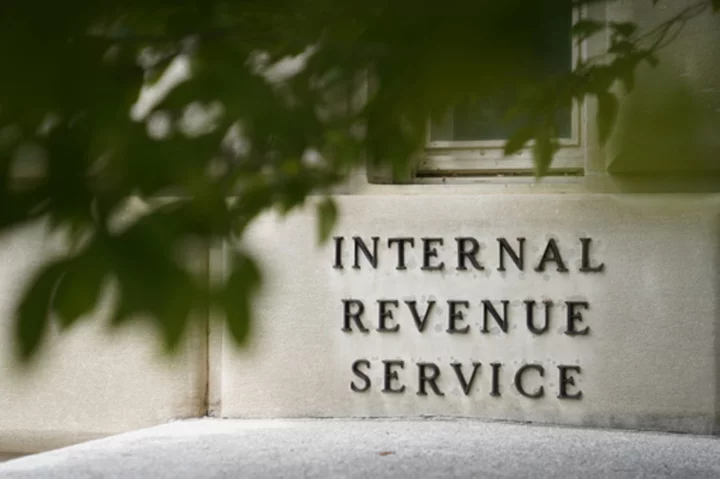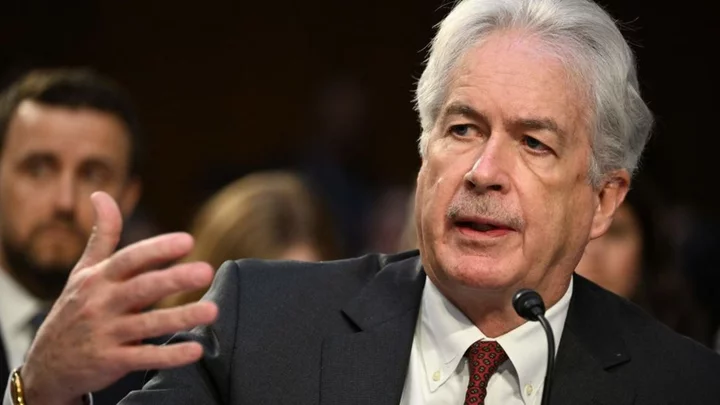WASHINGTON (AP) — House Republicans are seeking to make good on their campaign promise to rein in the IRS with cutbacks built into the debt ceiling and budget cuts package moving through Congress.
The bill rescinds $1.4 billion given to federal tax collector in the Democrats’ health and energy package that was approved last year on party-line votes. The White House says the debt deal also includes a separate agreement to take $20 billion from the IRS over the next two years and divert those funds to other nondefense programs.
Democrats expended a lot of political capital to get the IRS more money last year. They faced an onslaught of campaign ads, many of them misleading, about the expected hiring of 87,000 “new agents” to target low- and middle-class Americans.
Now, Biden administration officials are offering assurances that the spending cuts secured by Republican negotiators will have minimal impact on the agency's operations over the next few years.
The agency is on course to still get nearly three-quarters of the $80 billion boost that Congress approved for the agency last year. And the agency has the flexibility to spend some of that money sooner than planned, officials stressed.
“The IRS has the resources it needs in the near term to improve customer service and go after wealthy and corporate tax evaders,” tweeted Deputy Treasury Secretary Wally Adeyemo.
But for Republicans looking to win support for the bill, the spending cuts for the IRS represent a critical selling point. The first bill that House Republicans passed this year would have rescinded most of the extra dollars Congress had approved for the IRS the year before. The bill has gone nowhere in the Democratic-controlled Senate.
As for the debt deal, “what this does is put the IRS at the forefront. We have a down payment in this bill of $1.4 billion to rescind their enforcement hiring this fiscal year. In the appropriations process, we’ll come back for more,” said Rep. Patrick McHenry, R-N.C., one of the lead GOP negotiators.
In April, agency leaders released details on how the agency would use the $80 billion infusion for improved operations, pledging to invest in new technology, hire more customer service representatives and expand its ability to audit high-wealth taxpayers. The plan lays out the specifics of how the IRS would allocate the $80 billion through fiscal year 2031.
Now, with some of that money clawed back, there is a question about what programs may take a back seat. Treasury officials say their plan to develop an online free file tax return system, which is in its pilot development stage, for instance, will not be impacted by the cuts.
But some analysts are skeptical about the Biden administration's assurances. Steve Rosenthal, senior fellow at the Urban-Brookings Tax Policy Center, said “the loss of the funds has to be a setback” for the agency. “With less money and resources, everything will slow down, it just may take a while longer" to develop certain promised programs, he said. “I don't know if this will come out of service, enforcement, technology or otherwise.”
Rep. Richard Neal of Massachusetts, the top Democrat on the House Ways and Means Committee, said he spoke with Treasury about the impact of the debt limit bill's IRS funding cuts: “I came away, if not happy, at least satisfied.”
He said the potential for a default was a far greater concern, so he understood why the White House agreed to the cuts.
“The fact that the money is going to be diverted to other initiatives is not my first choice, but I think to get this over the goal line, in terms of the contrast of an international calamity, that has to be done," he said.
Neal said he believes the IRS won’t be greatly harmed as a result of the cuts, adding, “That’s what I’ve been assured.”
The Congressional Budget Office has projected that the $1.4 billion rescission will actually increase deficits by about $900 million over the next decade because it will lead to less tax revenue coming in. “CBO anticipates that rescinding those funds would result in fewer enforcement actions over the next decade and in a reduction in revenue collections," the May 30 report to Speaker Kevin McCarthy, R-Calif., states.
The CBO's projections did not include the $20 billion that the White House agreed to divert to other programs.
Rep. Brendan Boyle, the top Democrat on the House Budget Committee, said former President Donald Trump's own appointed IRS commissioner repeatedly brought up to Congress the dramatic staffing shortages the IRS was experiencing. The agency's enforcement staff has shrunk by about one-third since 2010, and Boyle said that has led to lower-income and minority taxpayers being audited at a higher percentage than the wealthy.
“I'm very concerned that some of these cuts could impact the direction the IRS wants to go, and that is bring more fairness when you talk about audits,” Boyle said. “That is certainly an area over the weeks and months ahead that I'm going to be following up on.”
Arguing for the IRS cuts shortly before the House vote Wednesday night, Rep. Garret Graves, R-La., lauded the Republican effort.
“I have never had a constituent say, ‘Gosh, I wish I could have more audits,'" Graves said.









